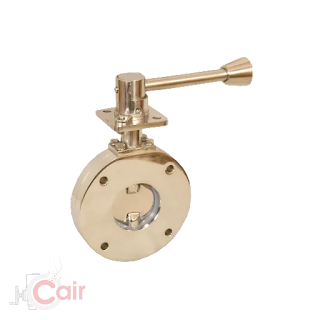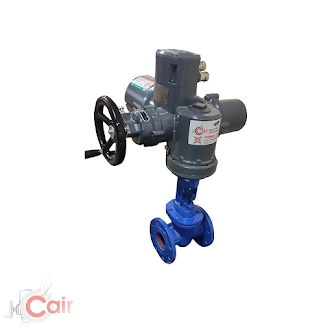The Ultimate Guide to Choosing a Butterfly Valve Supplier
Due to its ability to regulate the movement of liquids and gases via pipelines, butterfly valves are a crucial part of many industrial processes. They are extensively utilised in many different sectors, including those that produce electricity, treat water, and those that deal with oil and gas. The performance and lifespan of your butterfly valves, as well as the general success of your operations, can be significantly impacted by the supplier you choose. The significance of butterfly valves in industrial applications, the elements to take into account when choosing a supplier, the advantages of dealing with a reliable provider, and how to assess a supplier's quality, service, and support will all be covered in this blog article.
Understanding the Importance of Butterfly Valves in Industrial Applications
Butterfly valves are renowned for their ease of use, sturdiness, and capacity for high-pressure applications. To regulate the flow of liquids and gases, they are frequently employed in industrial pipes. These valves have a rotating disc that works as an axis to open or close the flow. Cast iron, steel, or plastic are the most common materials for the valve body and the disc, respectively.
Factors to Consider When Choosing a Butterfly Valve Supplier
When it comes to sourcing butterfly valves for your operations, there are several factors that you should consider when choosing a supplier. These include:
Industry experience: Look for a supplier that has experience and expertise in your specific industry and application. This will ensure that the valves they provide are tailored to meet your specific needs.
Quality control: Ensure that the supplier has a strict quality control process in place to ensure that the valves meet the highest industry standards before they are shipped to customers.
Customer service: Look for a supplier that has a dedicated customer service team that can provide prompt and efficient service, ensuring that any issues or concerns are quickly and efficiently resolved.
Price: Consider the cost of the valves, but don't make price the only consideration. A cheaper valve that doesn't meet your requirements or fails prematurely will end up costing you more in the long run.
The Benefits of Working with a Trusted Butterfly Valve Supplier
By partnering with a reputable supplier, you can make sure that you are obtaining valves that adhere to the strictest industry standards and that you have access to the assistance and knowledge you need to make sure that your valves are successfully implemented. Working with a dependable provider has certain advantages, such as:
High-quality products: You can be confident that the valves you are receiving meet the highest industry standards and are designed to perform reliably in your specific application.
Expertise and support: You have access to the expertise and support of the supplier, who can provide guidance and assistance throughout the sourcing and implementation process.
Responsive service: You can expect prompt and responsive service from the supplier, ensuring that any issues or concerns are quickly and efficiently resolved.
How to Evaluate a Butterfly Valve Supplier's Quality, Service, and Support
Once you have narrowed down your list of potential suppliers, it's important to evaluate their quality, service, and support to ensure that they meet your needs. Here are a few steps you can take to evaluate a supplier's quality, service, and support:
Request product samples: Request samples of the valves you are interested in, and evaluate the quality of the product.
Check references: Ask the supplier for references from their current or past customers and reach out to them to get their feedback on the supplier's products, service, and support.
Review certifications and accreditations: Check if the supplier has any certifications or accreditations, such as ISO 9001, which indicates that they have a quality management system in place.
Assess lead times and delivery options: Ask the supplier about their lead times and delivery options. Make sure they can meet your delivery schedule and that they offer options that work for you.
Evaluate the warranty and after-sales service: Ask the supplier about their warranty and after-sales service. Make sure they stand behind their products and that they will provide support if anything goes wrong.




Comments
Post a Comment